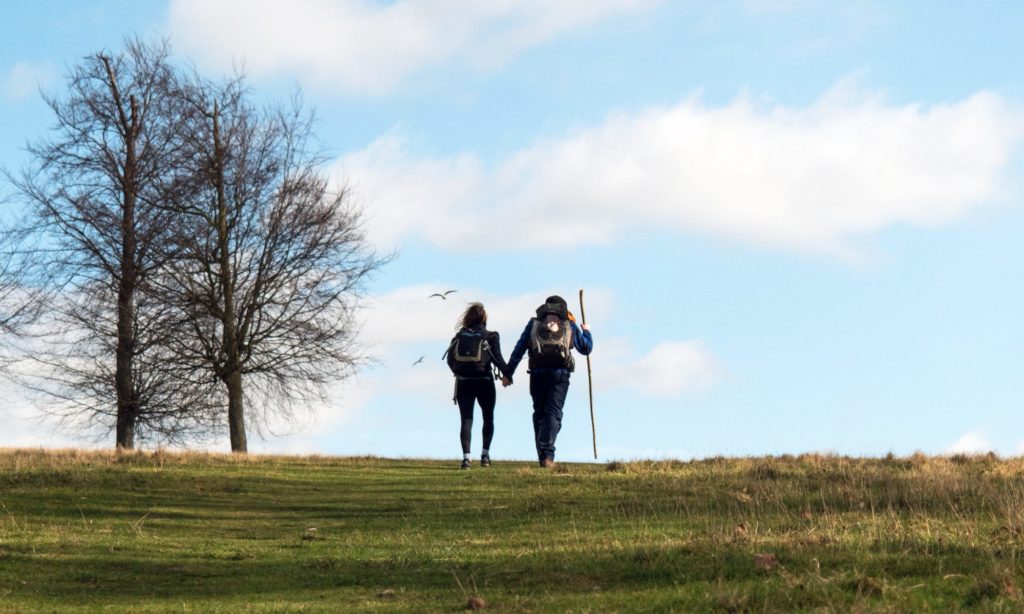
You are invited to try the practice of being an “Episcopal Pilgrim.” “What’s an Episcopal Pilgrim?” Here’s some background and context.
At the end of June, 2016, I retired from the practice of congregational ministry. Paula (my wife) and I have been and are discerning where to relocate, and we don’t want to commit to participating in another congregation until we resettle. At the same time, I was helping place students into their field education congregations and wanted to get a fresh experience of current and potential congregational sites. Killing two birds with one stone, we became Episcopal Pilgrims.
Over the course of the past year-and-a-half, we have visited every Episcopal congregation and three African Methodist Episcopal congregations (thanks to the good guidance of Middler M.Div student and AME Pastor Benita Hill) within an hour-and-a half drive of our home in Lakeway, west of Austin. In a word, it has been a grand experience.
I haven’t heard a bad sermon yet and sometimes the sermons have been exceptional. Being a participant in the liturgy rather than the presider/preacher has been a gift. It has allowed me to take off the presider’s split experience of participating in the liturgy while simultaneously being acutely aware of what is happening within the congregation and what needs to happen next. Although the liturgy experience is unique in each congregation, nonetheless it has been also and always deeply, profoundly an immersion into the presence of the Trinity and the people of God. What a gift it is to be weekly reminded of who God is and who we are, even as the ways congregations practice liturgy are wonderfully diverse expressions who them and their unique contexts.
Paula also made an important insight about all of this which speaks directly to the value of being an Episcopal Pilgrim. In our congregations, whether we are laity or clergy, we get settled in our ways. On Sunday we are typically and laudably participating in our own congregation. We can go years, decades even, without visiting another congregation on Sunday. Our vision of the diversity and richness of the Church becomes limited to our own small pasture. We forget the breadth and depth of the work of the Holy Spirit in other congregations. We are impoverished without being aware of the poverty of our vision and relationship.
Being on Episcopal Pilgrimage has been wonderfully refreshing and renewing for us. It breaks off the encrusted barnacles of believing that the way we have embodied Christ in our usual congregation is either the “right” way or the way everyone does it. We are opened to the diversity of being Christ in the world. We can shed any responsibility for what is happening, turn off that inner voice that criticizing how another congregation is Christ or plagiarizing good ideas! We can simply be embraced by God’s loving presence and movement within the Body allowing us to rest in and be refreshed by grace and mercy. We may even find that we are being renewed in our faith and spiritual journey.
So, here is some incomplete guidance about practicing Episcopal Pilgrimage.
Set an intentional period of time to temporarily leave one’s usual congregation and to visit other Episcopal congregations in your area of the world. Briefly put: it is to intentionally visit one’s neighbors and participate in the Eucharist on Sundays with them. You also may want to visit congregations outside the Episcopal Church. The AME congregations we have participated in have given us warm welcomes and opened our eyes to the breadth and depth and richness of God’s grace.
The length of the pilgrimage can be of your own choosing. In order to get into the spirit of pilgrimage and have a reasonably broad experience, I suggest at least six weeks. A whole summer might be even richer.
What about giving while on pilgrimage? Because we are currently not attached to a congregation, Paula and I designate our usual tithe a “Pilgrims’ Tithe” and give that. You may not want to neglect your own congregation while on pilgrimage, so figure out what makes sense to you.
Let your vicar or rector know what you’re doing. Clergy have enough over which to say grace without worrying about whether you have decided to permanently leave. When you return from pilgrimage, report back. Make a point of sharing the experience with the clergy and with the congregation as well.
Finally, go with eyes and heart open. Expect grace and mercy to happen. Be refreshed and renewed. Rejoice in experiencing a small taste of the richness of God.
 Parker Jameson served as a congregational priest for thirty-five years. He and Paula have been married for thirty-six years and are discerning the next leg of the journey.
Parker Jameson served as a congregational priest for thirty-five years. He and Paula have been married for thirty-six years and are discerning the next leg of the journey.

